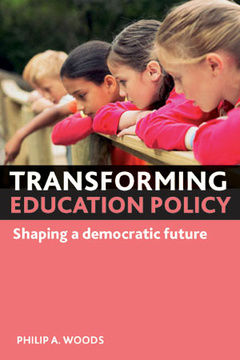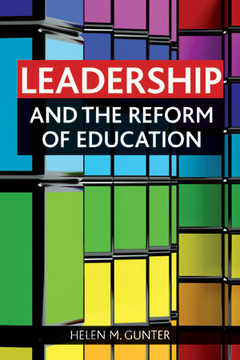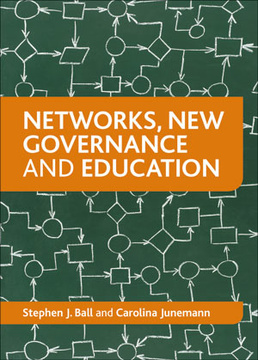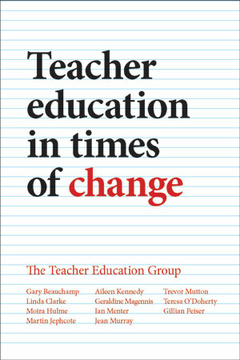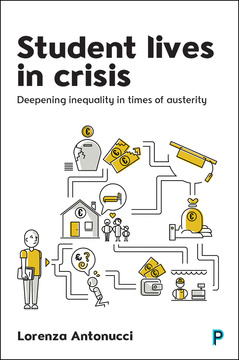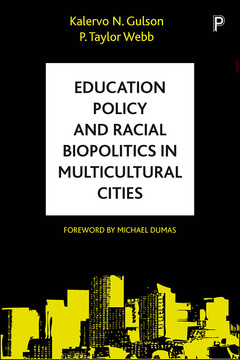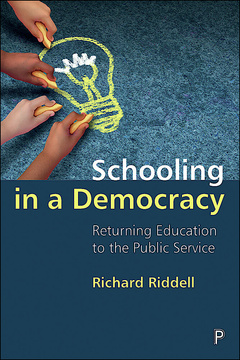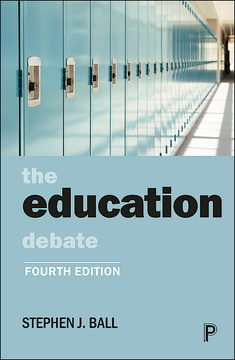Published
Sep 10, 2014Page count
328 pagesISBN
978-1447311324Dimensions
198 x 129 mmImprint
Policy PressPublished
Sep 23, 2013Page count
328 pagesISBN
978-1447311317Dimensions
198 x 129 mmImprint
Policy PressPublished
Sep 23, 2013Page count
328 pagesISBN
978-1447311348Dimensions
Imprint
Policy PressPublished
Sep 23, 2013Page count
328 pagesISBN
978-1447311355Dimensions
Imprint
Policy PressAt a time when education is considered crucial to a country’s economic success, recent UK governments have insisted their reforms are the only way to make England’s system world class. Yet pupils are tested rather than educated, teachers bullied rather than trusted and parents cast as winners or losers in a gamble for school places.
Education under siege considers the English education system as it is and as it might be. In a highly accessible style, Peter Mortimore, an author with wide experience of the education sector, both in the UK and abroad, identifies the current system’s strengths and weaknesses. He concludes that England has some of the best teachers in the world but one of the most muddled systems.
Challenging the government’s view that there is no alternative, he proposes radical changes to help all schools become good schools. They include a system of schools receiving a fair balance of pupils who learn easily and those who do not, ensuring a more even spread of effective teachers, as well as banning league tables, outlawing selection, opening up faith schools and integrating private schools into the state system. In the final chapter, he asks readers who share his concerns to demand that the politicians alter course. The book will appeal to parents, education students and teachers, as well as everyone interested in the future education of our children.
"This book offers an engaging and detailed overview of the English education system. It provides an excellent starting point for students setting out on their studies in Education." Stephen Griffin, Newman University
“An expert voice to be trusted - and enjoyed. If you really want to understand what education is for and how we could create a high quality system, I urge you to read this book.” Melissa Benn, journalist and author of 'School Wars'
"Anyone can read and understand it and come away with a much clearer idea of how our school system works, how it got that way and what needs to be done to rescue it" Francis Beckett, New Statesman
"a commendable contribution…will hopefully inspire policy makers and politicians” Cole Armstrong, MSc in Social Research Methods, LSE
"An important book which I hope will be widely read by parents, students, teachers, and all those who care about the education of our children. (It would be good if a few politicians read it, too)", Derek Gillard, Education in England
"The book makes a credible attempt at explaining why there is a better alternative" Cole Armstrong, LSE Review of Books
"Stimulating and thoroughly engaging" Sheila Dore, Journal of the Socialist Education Association
"This is the book I wish i had been told to read at the start of my career in Education." Jon Rainford's blog
"A thoughtful book focusing on the meaning of education for English society and how it can be improved for all young people based on developments in the Nordic countries.” Pasi Sahlberg, Director General of CIMO (Centre for International Mobility and Cooperation) in Helsinki, Finland
"Wise and useful...a highly enlightening primer" Tristram Hunt, The Guardian
"A well written book that touches on most of the topics delivered in Education studies. It provokes thought and creates the basis for discussion." Cheryl Hine, Leeds City College.
"Clear, accessible and stimulating, with a critical view invaluable to undergraduates." Stephen Dixon, Newman University.
“Peter Mortimore has analysed the English education system from 'Buildings' to 'Bildung,' from 'Desirable outcomes' to 'Democracy' and from 'quality' to 'equality'. He has compared English with Nordic education and thereby been able to identify new weaknesses and strengths and thoughtful and innovative ways forward.” Lejf Moos, Aarhus University, Copenhagen. President of European Educational Research Association (EERA)
Peter Mortimore has been a teacher, researcher and administrator in education for nearly 50 years. Most recently he was Professor of Education at the University of Southern Denmark having previously been Director of the Institute of Education, University of London. He has carried out numerous studies of school effectiveness and undertaken reviews of Nordic education systems. He was an education columnist for the Guardian for four years.
What is education?
Desirable outcomes
Intellectual ability
Learning
Teaching
Schools
Quality control
Strengths
Ambiguities
Weaknesses
How good is the system?
A better system?
Steps towards a better system
What next?













